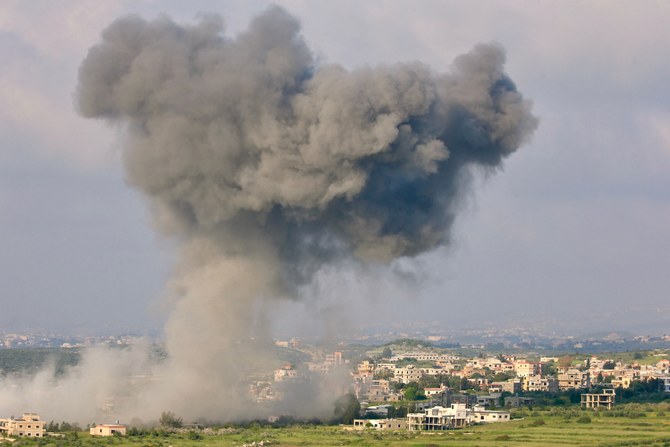Khaled Abou Zahr
This week marked the 20th anniversary of the passing of my father, Walid Abou Zahr, the founder of Al-Watan Al-Arabi. During his lifetime as an engaged Lebanese media owner and publisher, he faced more than eight assassination attempts.
Starting from Lebanon, where the office of the newspaper Al-Moharrer was attacked with heavy artillery, these attacks culminated with a car bomb attack on the offices of Al-Watan Al-Arabi in Paris in 1982. In the end, it was cancer that claimed his life in 2004, one year before the same patrons that had targeted him unleashed a ruthless and systematic assassination scheme across Lebanon, including the assassination of former Prime Minister Rafik Hariri in February 2005.
If I were to name all the presidents, prime ministers, politicians, journalists, lawyers, judges and thinkers who fell victim to these evil forces in Lebanon throughout this time, it would probably take up the entire space of this article. Has anything changed in the last 40 years? Unfortunately, the answer is no. Only last week, Pascal Suleiman, a coordinator for the Christian Lebanese Forces party in the Byblos region, was abducted and later discovered dead.
According to the army, he was murdered in a carjacking by members of a Syrian gang, who then transported his body across the border. At the funeral, tearful tributes and anger pushed mourners to express their doubts about the army’s explanation. The insecurity and the dreadful current situation have blurred the lines and made killings easier. Moreover, Hezbollah has bullied and eroded every single sovereign institution.
The interior minister called for an open investigation. Unfortunately, the reality is that the Interior Ministry, just like the army, is incapable of taking action and this investigation will be buried like all those before it. Can anyone stop a new wave of political assassinations from taking place today? Once again, the answer is no.
One thing is clear every time the regional equilibriums are put to the test: the Lebanese pay the price. Usually, they say that whenever a politician faces pressure on the domestic front, he looks for an international crisis to get him out of it. In Lebanon, it is the opposite. Every time the region faces a crisis, the Syrian regime or Hezbollah will target the domestic scene and hit it harder than ever.
We are now in one of those dangerous cycles. As tensions between Israel and Iran and its proxies heat up, Lebanon is at risk of being dragged into the confrontation. It is once again the hostage in a situation where it is being unwillingly anchored to the Iranian regime’s aggressive policies, which it carries out through Hezbollah. Although I think both countries are looking to avoid a full confrontation in a US presidential election year, mistakes do happen.
Geography and demography have put Lebanon in the middle of these cycles. And despite the resourcefulness and creativity of its people, they have been unable to escape this predicament. There is, nevertheless, a change this time compared to previous crises. The current economic and political situation has stripped the country of its regional symbolism. It has lost its favorite child status and is now the forgotten one. It is no longer the center of the crisis and no one is looking to save Lebanon because it has been saved too many times already. How many international initiatives, financial support schemes and more have been given to Lebanon, only to be completely lost? If we add to the greed and protection of the banking sector’s Ponzi scheme, we reach the level of revulsion.
In short, no one will come to the rescue of Lebanon this time. It is high time for the Lebanese to save themselves. I might sound like a broken record, but the only way forward – even if it is not a guarantee of success – is federalism. The more local we go in terms of decision-making, the greater the chances of success.
This is also how each community can protect itself and express its opinion, as well as aligning with whomever they wish regionally. The killing of Suleiman, whether by a Syrian gang or not, highlights the risks of singling out and targeting a specific community. This is also part of the vicious circle of divide and rule, which can lead to secession.
Now, it is true that this solution does not change the hegemony of Hezbollah in the country or its hijacking of the defense, security and foreign policies. But it allows for a new voice to emerge. It allows the Lebanese to continue to live while Hezbollah chooses death. Moreover, it is of the utmost importance in this time of crisis to present a plan for a better future for the country that is by the Lebanese and for the Lebanese. And none of the plans I hear bring a real possibility of change except federalism.
In my father’s obituary, Asharq Al-Awsat gracefully described him as “the reader of geopolitical volatility or swings.” Even as sickness was taking over, he foresaw the upheaval that came to Lebanon in 2005. And so, for all the victims of these geopolitical swings and for the future of the country, let us work on a new political and social pact that keeps Lebanon immune from this: it starts with a plan for federalism.
Arab News







